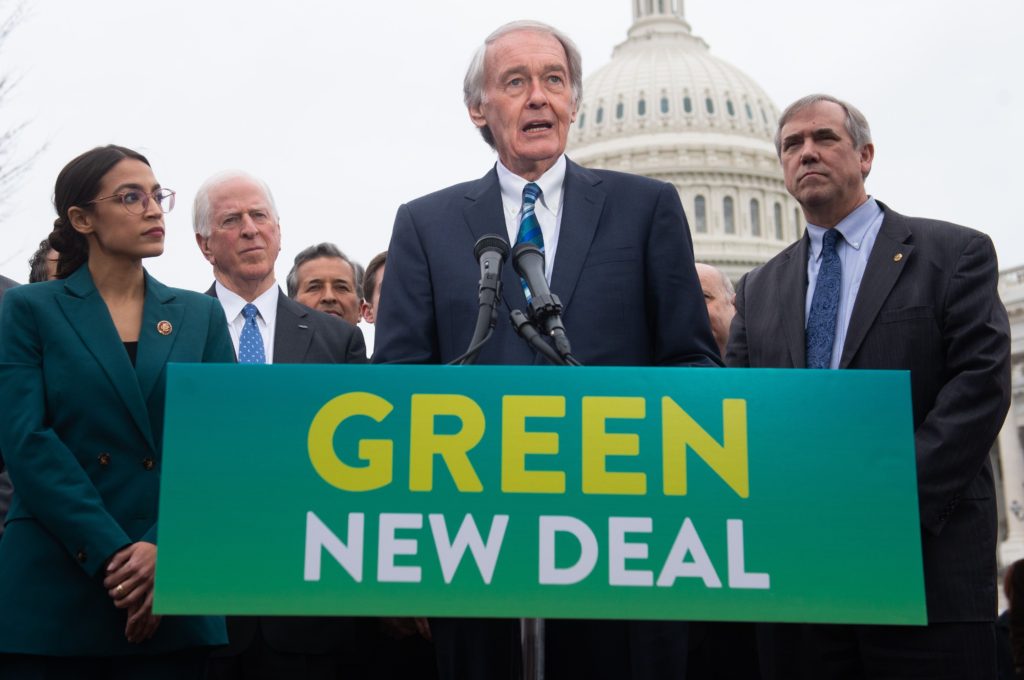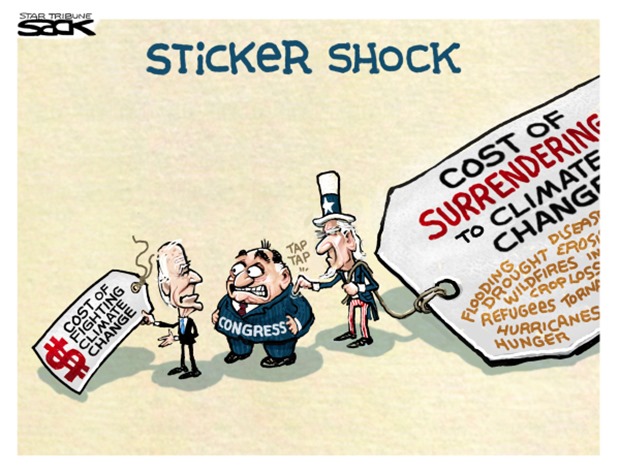The Costs of Addressing Climate Change

press conference to announce Green New Deal
Most people understand that the longer our civilization waits to address climate change in earnest, the more expensive it’s going to be. Moreover, the costs are not growing linearly, but exponentially.
However, there are several impediments:
• The private sector has little incentive to make this happen, because the incumbent industries, e.g., fossil fuels, are able to externalize the environmental costs. There is no tax on carbon that would serve to make clean technologies like renewable energy more competitive.
• Most of the world’s carbon pollution is coming from the developing world, countries that cannot afford clean energy and transportation solutions.
• The incumbent industries have developed a very cozy relationship with law-makers over a period of more than a century. At this point, Big Oil essentially owns the U.S. Congress.
• Most of the suffering that is generated by a warming planet falls on the world’s most disenfranchised and least powerful people, those who are virtually invisible to the developed world. Wealthy people can simply move to regions of the world relatively unaffected, a luxury people do not have.
• At least in the United States, this all made worse by the fact that environmentalism in any of its forms is a political football. The entirety of the Republican Party looks at climate change mitigation as anti-capitalist. This, of course, is disingenuous in the extreme. They know that concepts like the Green New Deal will generate millions of high-paying jobs, but because they’re dominated by Big Oil, they’re forced to take these ridiculous positions.
The only factor that favors those of us who want to address climate caused devastation before it’s too late is our sheer numbers. As you’re reading this post, recognize that there are more than 200,000 groups whose mission is environmental responsibility. That’s a lot of horsepower.

